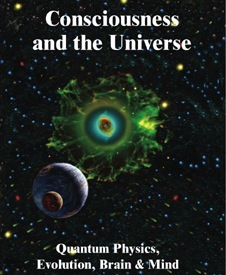|
|
|||||||||||||||
Journal of Cosmology, 2010, Vol 7, 1779. JournalofCosmology.com, May, 2010 Famed astrophysicist Dr. Stephen Hawking has voiced concern about the dangers, he believes, are posed by alien predators who may arrive in giant space ships, to conquer, enslave, destroy, colonize, and voraciously exploit the resources of Earth. According to Hawking: 3. Alien Conquistadors? Hawking is Right, Robert Ehrlich, Ph.D., Professor of Physics, George Mason University. It is easy for one’s initial reaction to Stephen Hawking’s assertion about predatory alien visitors to be dismissive, since while he is perhaps our greatest living physicist, he has no more expertise in the area of alien motives than anyone else – assuming that intelligent aliens even exist. But after a little thought one’s second reaction might be “how could it be otherwise?” Given the obstacles to alien life evolving beyond the microbial stage in our own solar system, one presumes that alien visitors would come to us from other star systems – the other possibility being that microbial aliens might hitch a ride on a meteorite blasted off from a planet within our own solar system. Alien visitors from the stars would fall into one of four categories, i.e., they (1) have mastered the technology of faster-than-light travel (if that is even possible), (2) be adaptable robots whose mental processes reflect those of their senders, (3) have such long lifetimes that interstellar voyages are possible, or (4) have lived for many generations aboard their ships. My own guess is that number 2 would be the most likely, but with all these choices it would be a safe guess that if these space-journeying aliens exist, their technology is light-years ahead of ours, and that they are almost certainly the preeminent species on their home planet. How would a species attain that favored status? Certainly, intelligence is a factor, but one can always imagine unintelligent species winning out. For example, it is not out of the realm of possibility that intelligent humans could be wiped out by lowly microbes. Nevertheless, all our experiences on Earth suggest that when a more technologically advanced species or group of humans encounters another and competes for the same resources, the result is always conflict, with the more advanced group emerging victorious – the movie Avatar notwithstanding. Being a member of a species generally means you value the lives of your own members above those of other species, even if you might not wish to see them die needlessly. On Earth our recognition of the deep mental and emotional lives of some of our fellow passengers on the planet has come exceedingly slowly – with Rene Descartes even holding that animals are simply robots having no thoughts or feelings. Given the probability that the gap in intelligence between alien visitors and humans would be far greater than that between humans and our close relatives on Earth, how could they not think of us as a very lowly life form, certainly not worthy of treating as equals? One also needs to ask what motives aliens would have for taking the trouble to travel across the stars. Could it be simple curiosity, and a desire to have us join the “Galactic Federation?” This seems highly doubtful, because interstellar communication would seem to be the far easier course of action in that case. Of course, there is the limit of the speed of light to consider, which makes interstellar communication a rather prolonged affair. However, if we have already allowed faster-than-light travel, there is no reason to exclude faster-than-light communication, using tachyons perhaps, which incidentally are not entirely excluded based on experimental searches to date. Let’s assume Stephen Hawking is correct then, and proceed to the next step – what should we do? One might argue that we should make no attempt to communicate with intelligent aliens by broadcasting signals. The temptation to do so could become quite strong if SETI ever detects an unambiguously positive signal. On the other hand, such communication would be quite pointless should the signal be from a star 500 light years away, given that the beings who we will have likely evolved into (or who replace us) in 500 years will bear little resemblance to those of us who sent the message. Moreover, given the difficulties we now have in even taking simple actions to save the planet from manmade environmental catastrophe, one can only imagine the debate in the halls of Congress and United Nations as to how to reply to alien attempts at communication.
|
|
|
|
|
|
|
|
 Colonizing the Red Planet ISBN: 9780982955239 |
 Sir Roger Penrose & Stuart Hameroff ISBN: 9780982955208 |
 The Origins of LIfe ISBN: 9780982955215 |
 Came From Other Planets ISBN: 9780974975597 |
 Panspermia, Life ISBN: 9780982955222 |
 Explaining the Origins of Life ISBN 9780982955291 |












